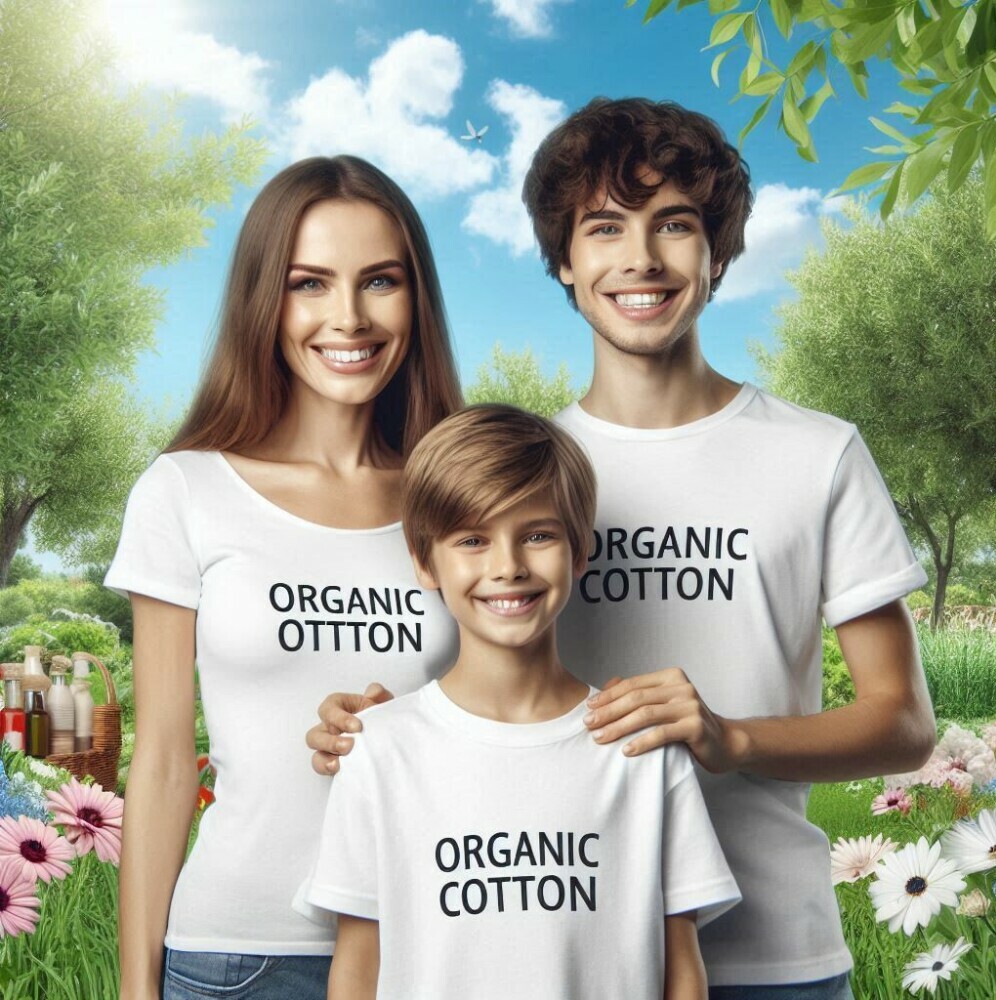
Introduction
Have you ever thought about how the clothes you wear affect your health and the environment? Embracing the organic advantage clothing that not only benefits your skin but also supports sustainable living. This exploration into organic clothing and the importance of skin breathing will shed light on how these two interconnected topics can transform your wardrobe and well-being.
The Importance of Skin Breathing
Your skin does more than just cover your body; it plays a vital role in maintaining your overall health.
- Thermoregulation: Your skin helps regulate body temperature through sweating and evaporation, ensuring you stay comfortable in various climates.
- Toxin Elimination: As an excretory organ, the skin removes toxins through sweat, helping to detoxify your body.
- Moisture Balance: Proper skin breathing maintains optimal hydration, preventing your skin from becoming too dry or too oily.
- Microbial Balance: A healthy skin environment supports a balance of beneficial microorganisms, protecting you from harmful bacteria.
- Cellular Respiration: Skin cells require oxygen exchange to function correctly, and good skin breathing facilitates this process.
Organic Clothing and Skin Health
Choosing organic clothing can significantly enhance skin health and comfort.
- Breathability: Organic natural fibers like cotton, hemp, and bamboo are more breathable than synthetic materials, allowing your skin to breathe and reducing the risk of irritation.
- Reduced Chemical Exposure: Organic clothing is produced without harmful pesticides, herbicides, or synthetic dyes, minimizing your exposure to toxic substances.
- Hypoallergenic: Organic fabrics are less likely to cause skin irritation or allergic reactions, making them ideal for sensitive skin.
- Moisture-Wicking: Natural fibers effectively absorb and evaporate sweat, keeping your skin dry and comfortable.
- Temperature Regulation: Organic materials help maintain a stable body temperature, providing comfort in both warm and cool conditions.

Environmental Benefits of Organic Clothing
Switching to organic clothing is not only good for your skin but also for the planet.
- Sustainable Farming Practices: Organic farming promotes biodiversity and uses methods that preserve soil health.
- Reduced Water Pollution: Organic farming minimizes the use of synthetic chemicals, reducing runoff into water sources.
- Lower Carbon Footprint: Organic agriculture often requires less energy and emits fewer greenhouse gases.
- Biodegradable Materials: Organic fabrics break down naturally, reducing landfill waste.
- Promotes Soil Health: Organic farming practices enhance soil fertility and structure, supporting sustainable ecosystems.
Specific Organic Fabrics
Here are some excellent choices for your organic wardrobe:
- Organic Cotton: Soft, breathable, and versatile. Perfect for everyday wear.
- Organic Hemp: Durable, naturally antimicrobial, and gets softer with each wash.
- Organic Bamboo: Soft, moisture-wicking, and has natural temperature-regulating properties.
- Organic Linen: Lightweight, breathable, and ideal for warm weather.
- Organic Wool: Naturally insulating, moisture-wicking, and odor-resistant.
- Tencel (Lyocell): Made from wood pulp, it’s soft, breathable, and biodegradable.
- Modal: Another wood-based fabric that’s soft and resistant to shrinkage.
Tips for Transitioning to an Organic Wardrobe
Switching to an organic wardrobe doesn’t have to be overwhelming. Here’s how to start:
- Start Gradually: Replace items as they wear out rather than all at once to make the transition manageable.
- Focus on Basics First: Begin with items you wear most often, like underwear, t-shirts, and socks.
- Look for Certifications: GOTS (Global Organic Textile Standard) is a reliable certification for organic textiles.
- Consider Second-Hand: Buying used organic clothing can be more affordable and eco-friendly.
- Care for Your Clothes Properly: This extends their life and reduces environmental impact.
- Check the Entire Production Process: Some clothes may use organic fibers but non-organic dyes or finishes.
- Be Aware of Blends: Some garments mix organic and non-organic fibers.
- Invest in Quality: Organic clothes often last longer, justifying a higher initial cost.
- Research Brands: Look for companies committed to sustainability throughout their supply chain.
- Consider Local Options: Supporting local organic clothing makers can reduce transportation emissions.

Conclusion
Choosing organic clothing is a powerful step towards better health and a cleaner planet. By understanding the importance of skin breathing and the benefits of organic fabrics, you can make informed decisions that enhance your well-being and support sustainable practices. Start your journey towards an organic wardrobe today and experience the difference for yourself. Your skin, and the Earth, will thank you.
Would you like more information on specific organic fabrics or tips for transitioning to an organic wardrobe? Let’s continue the conversation and explore the endless possibilities of sustainable fashion together.
Discover the Power of Organic, Clean, and Natural Living
At organic-look we’re passionate about holistic well-being and helping you live your best life naturally. Explore our articles on organic, clean, and natural living, and take your journey to the next level with our exclusive well-being products. From T-shirts and mugs to drawstring bags, stickers, and more—each item is designed to inspire and support your healthy lifestyle.
Elevate your everyday life with products that reflect your commitment to wellness. Shop now and wear your well-being with pride!
Wear Natural: 100% Heavy Cotton Shirts for a Sustainable Wardrobe
At Organic-Look, we believe in aligning your style with your values. That’s why every t-shirt in our print-on-demand collection is crafted from 100% heavy cotton. This natural, durable fabric reflects our commitment to offering apparel that’s not just stylish but also eco-conscious and comfortable.
Why Choose 100% Natural Cotton?
- Comfort: Soft, breathable, and hypoallergenic, heavy cotton feels as good as it looks.
- Durability: With its thick, sturdy weave, 100% cotton shirts last longer, making them an eco-friendly choice.
- Sustainability: Natural fibers like cotton are biodegradable, reducing environmental impact compared to synthetic alternatives.
- Versatility: Ideal for casual wear, our designs let you express your personality while promoting sustainable living.
Celebrate Natural Living with Every Wear
Our 100% heavy cotton t-shirts are more than just clothing; they’re a statement. Whether you’re embracing clean beauty, Ayurvedic living, or holistic wellness, each piece supports your journey toward a healthier planet and a more mindful lifestyle.
Ready to Wear Your Values?
Shop Now for Unique Finds & Even More Variety!
Browse our collection today and show off your healthy lifestyle with pride
